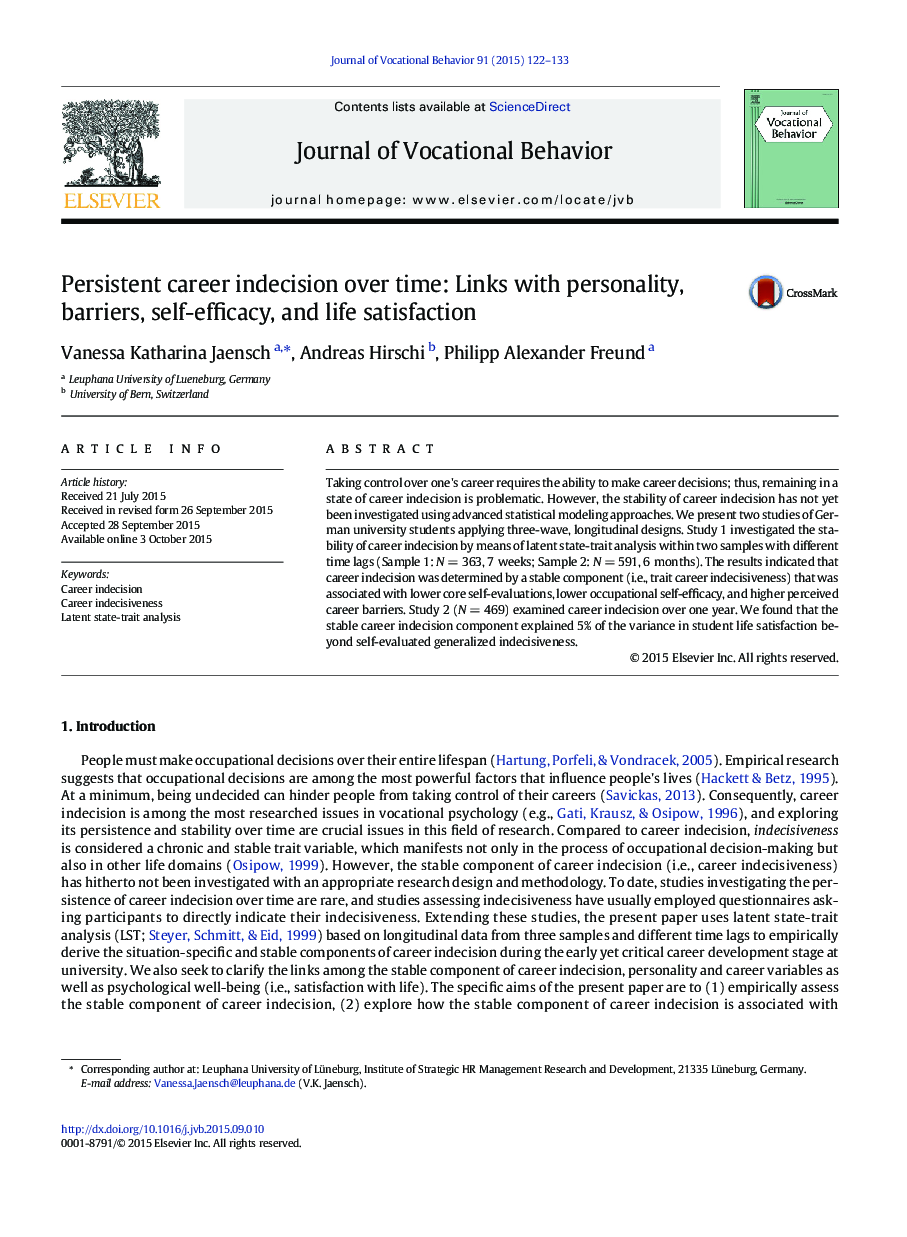| Article ID | Journal | Published Year | Pages | File Type |
|---|---|---|---|---|
| 886743 | Journal of Vocational Behavior | 2015 | 12 Pages |
•Career indecision showed a stable trait component (i.e., career indecisiveness) among German university students.•Stable career indecision was associated with lower occupational self-efficacy beliefs and higher perceived career barriers.•Stable career indecision negatively correlated with core self-evaluations.•Trait career indecisiveness explained 5% of variance in life satisfaction beyond generalized indecisiveness.
Taking control over one's career requires the ability to make career decisions; thus, remaining in a state of career indecision is problematic. However, the stability of career indecision has not yet been investigated using advanced statistical modeling approaches. We present two studies of German university students applying three-wave, longitudinal designs. Study 1 investigated the stability of career indecision by means of latent state-trait analysis within two samples with different time lags (Sample 1: N = 363, 7 weeks; Sample 2: N = 591, 6 months). The results indicated that career indecision was determined by a stable component (i.e., trait career indecisiveness) that was associated with lower core self-evaluations, lower occupational self-efficacy, and higher perceived career barriers. Study 2 (N = 469) examined career indecision over one year. We found that the stable career indecision component explained 5% of the variance in student life satisfaction beyond self-evaluated generalized indecisiveness.
